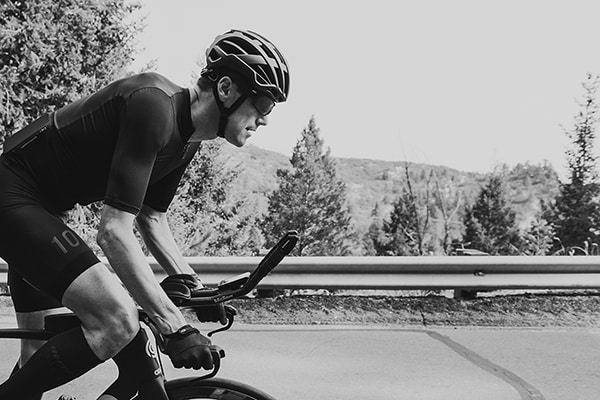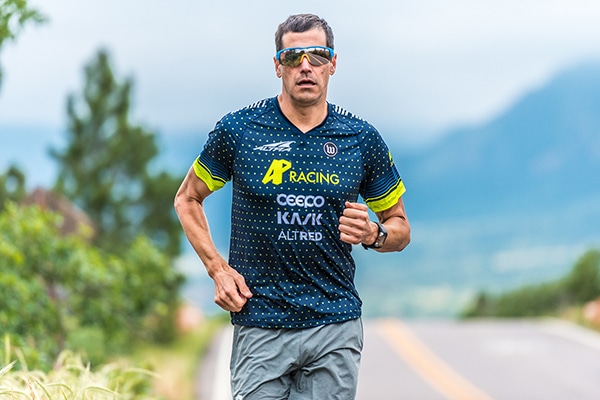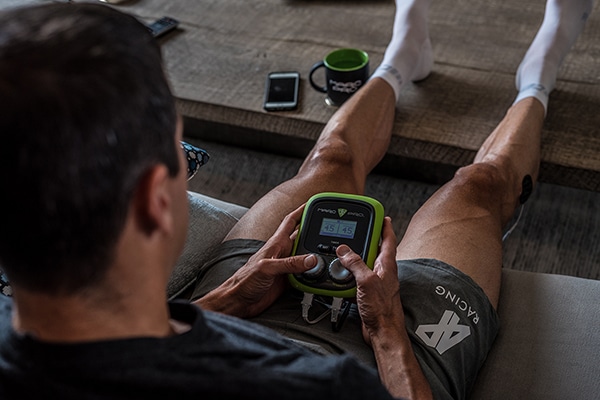Sports Psychology | 4 Tips to Help Improve your Ironman Mental Game

By Pro Triathlete/Ironman Champion Andy Potts
An Ironman™ is a long race. You spend anywhere from 8 to 16+ hours out on the race course, virtually alone, in your own head (scary place for me), and trying to cover this insane distance as fast as possible. The questions that I get asked all of the time: how do you mentally make it through and what goes on in your head? Are you zoning out, playing music in your head, thinking about your ‘to-do list’? What are you doing?
A lot of times when I get questions like these, folks are less curious about what I really do and are really looking for answers to help themselves (I get it). So, I will briefly touch on what I do and try to help each of you out there in the process.
Andy Potts Shares His Tips on Mentally Getting Through an Ironman Race
My self-talk during a race is pretty methodical and it comes from years or racing and years of training. Race day is simply another day of ‘work’ and I go through my routines like every other day. The same should be said for you. You should be establishing good habits in training that translate directly to racing. Here is what I do:
Systems Check
All day long, I am constantly doing ‘systems checks’ on my body and mind. Do I need more salt? More water? Maybe more protein or electrolytes? Should I adjust my position because of where the wind is coming from?
I do systems checks all day long, but especially when approaching an aid station. I self-assess, diagnose, and treat every time I approach an aid station and throughout the race.

Race Check
While the pro race is a bit different because there are a lot of race dynamics, as we are competing ‘head-to-head’ against our competitors, it is important for amateur athletes to assess the race too. For me, I am thinking: where am I in relation to certain people, is someone going to make a move and am I in the right position to cover it? How does person X look right now and can I bury him, use him, or exploit something for an advantage? What part of the course is coming up next and how will the field of guys react to it? Similarly, age group athletes should be thinking about wind direction, the terrain of the course, potential issues with other people on the road, and how best to prepare and address them as the race unfolds.
Shrink Your World
I always say that as things get tough, I always shrink my world. As an example, if you are feeling good, you might be looking down the road on the bike or run a mile or ¼ of a mile or whatever. As things get tough, my gaze gets lower and lower and I start to think about things within a foot or two of me or even within myself. Small world = small problems. I’ll start to focus on things like my pedal stroke or my hand position or really small things that I can control and give myself a sense of empowerment. It helps rebuild confidence and focus.
Always Leave Hope
During a race, it is critical to always leave hope. You might have a bad swim, but leave hope that you will have the best bike and run. Even if you get to the end of the race and you had an awful swim, terrible bike, and lackluster run, tell yourself: “I am going to have the best finish line celebration ever.” By leaving hope, you are making a conscious decision to be positive and that can make all of the difference in the world on race day.
If you want more tips on how to execute your perfect race or prepare for it, come check me out at www.andypottsracing.com for coaching, camps and clinics.
See how Andy Potts recovers after an Ironman race: https://marcpro.com/blog/triathlon-training-tips-andy-potts/
